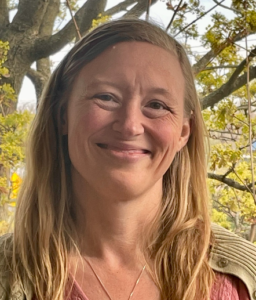Borderline Personality Disorder as a Response to Attachment Trauma | In-person | Friday, June 7, 2024 from 9:00 am to 12:00 pm, at the McHenry County Mental Health Board, 620 Dakota Street in Crystal Lake. Presented by Dr. Lora Wiens, LCP, with Hope and Healing Psychotherapy. FLYER
REGISTER HERE!
FREE: IDFPR 3 CEUs for LSW/LCSW, LPC/LCPC, and Psychologists (IAODAPCA Pending)
Clients with Borderline Personality Disorder (BPD) can challenge us with their emotional reactions, words, and behaviors. As therapists, the more that we understand these dynamics, the better we are able to assist these clients.
One way to understand BPD symptoms are as a natural response to Attachment Trauma. Dr. Wiens will explain how the disrupting the development of attachment early in life can result in attachment needs and being immediately accompanied by a range of trauma responses, including fight, flight, freeze, and faun.
While this coupling of attachment needs and threat response can look differently in terms of clinical presentation, for some people it looks like BPD. Helping someone with BPD understand the rapid cycling internally between different parts of the self in response to attachment threat can significantly help them to develop self-compassion and to connect with others in ways that are not emotionally dysregulating and/or destructive to the relationship. As Clinicians, understanding these dynamics can help us to maintain a compassionate posture to our clients and to more effectively navigate transference/countertransference dilemmas that commonly surface with this population.
Learning objectives:
To understand how early attachment trauma can contribute to the development of BPD.
To understand how an adult with BPD has parts of the self that developed in childhood and that mirror basic mammalian threat responses, i.e. fight, flight, freeze, and faun.
To understand how the difficulties in relationships that people with BPD experience can be understand as an attempt of their parts (i.e. fight, flight, freeze, and faun) to avoid experiencing the distress of their early attachment trauma.
To understand how self-injury, suicidal ideation/actions, and addictive behaviors can be understand as an attempt of their parts (i.e. fight, flight, freeze, and faun) to avoid experiencing the distress of early attachment trauma or to shut off this distress once it is triggered.
To help clinicians help clients with BPD understand these patterns in their own lives and to gradually cultivate a more mindful, compassionate way of relating to themselves.
To help clinicians use this knowledge and understanding to be able to better manage difficult transference/countertransference issues with clients with BPD.
Presenter:
 Dr. Lora Wiens, LCP, is a trauma specialist who helps to train other therapists to treat highly traumatized people. They have a doctorate in Clinical Psychology and a Masters degree in Philosophy. Dr. Wiens early career experience was working in Community Mental Health with children, adolescents, and adults who were experiencing severe mental illness that interfered with their ability to function.
Dr. Lora Wiens, LCP, is a trauma specialist who helps to train other therapists to treat highly traumatized people. They have a doctorate in Clinical Psychology and a Masters degree in Philosophy. Dr. Wiens early career experience was working in Community Mental Health with children, adolescents, and adults who were experiencing severe mental illness that interfered with their ability to function.
For 14 years, Dr. Wiens was a clinician at the Samaritan Counseling Center in Barrington, IL. During that time, they have developed their primary specialty of helping people recover from Complex PTSD and Dissociative Disorders. As part of this specialization, they completed a two-year training program in Dissociative Disorders with the International Society for the Study of Trauma and Dissociation (ISST-D) in 2012 and have been active as a leader and a member of a local chapter of the ISST-D.
In their transition to co-owning Hope & Healing Psychotherapy with Dr. Kate Curtis, Dr. Wiens will be putting more energy into helping therapists grow and passing on what they learned as a trauma specialist.



